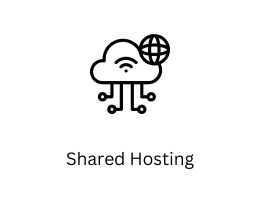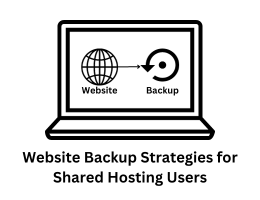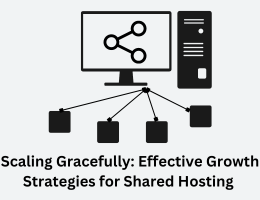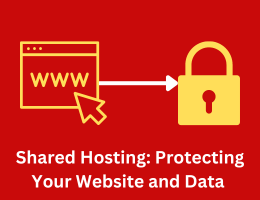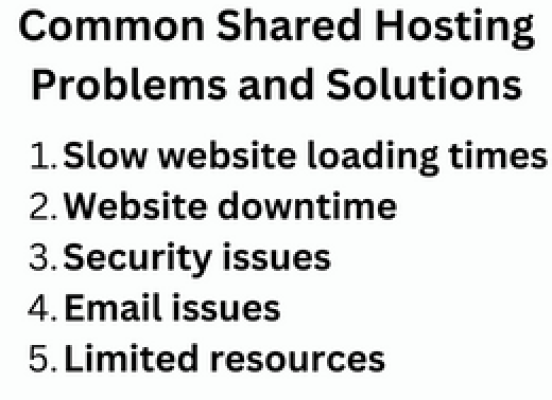
Common Shared Hosting Problems and Solutions: Troubleshooting Guide.
- By admin --
- Tuesday, 02 May, 2023
Shared hosting is a popular option for web hosting as it is an affordable and convenient way to host your website. However, like any other hosting option, shared hosting can encounter problems that can affect the performance of your website. In this guide, we will discuss some common shared hosting problems and provide solutions to help you troubleshoot.
1.Slow website loading times:
One of the most common problems with shared hosting is slow website loading times. This can be caused by a variety of reasons, including high traffic on the server, large files on your website, or slow server response time. To solve this problem, you can:
- Optimize your website's images and files to reduce their size and improve loading times.
- Use a content delivery network (CDN) to distribute your website's files across multiple servers, reducing the load on the server and improving loading times.
- Contact your hosting provider to see if they can move your website to a less crowded server or upgrade your hosting plan to a higher tier with better resources.
2.Website downtime:
Website downtime is another common issue with shared hosting. This can be caused by server maintenance, server overload, or server crashes. To solve this problem, you can:
- Contact your hosting provider to see if they can provide you with a detailed explanation of the cause of the downtime.
- Check your website's error logs to see if there are any specific errors that are causing the downtime.
- Consider moving your website to a more reliable hosting provider or upgrading your hosting plan to a higher tier with better uptime guarantees.
3.Security issues:
Shared hosting can be vulnerable to security issues as you are sharing the server with other websites. If one of these websites is hacked, it can potentially affect all other websites on the server. To solve this problem, you can:
- Ensure that your website is using secure protocols such as HTTPS and that you are keeping your website's software up to date with the latest security patches.
- Use security plugins or tools to help protect your website from attacks such as brute force attacks, SQL injections, and cross-site scripting (XSS) attacks.
- Consider upgrading to a more secure hosting plan such as a Virtual Private Server (VPS) or a dedicated server.
4.Email issues:
Shared hosting can also encounter email issues, such as emails not being delivered or being marked as spam. To solve this problem, you can:
- Ensure that your domain's DNS settings are correctly configured, including your SPF, DKIM, and DMARC records, to prevent your emails from being marked as spam.
- Check your email settings to ensure that they are configured correctly, including your outgoing server settings, email filters, and email forwarding settings.
- Contact your hosting provider to see if there are any server-side issues causing email delivery problems.
5.Limited resources:
Shared hosting plans often come with limited resources such as disk space, bandwidth, and CPU usage. If your website exceeds these limits, it can cause issues such as slow loading times or even website downtime. To solve this problem, you can:
- Optimize your website's code and files to reduce their size and improve loading times.
- Use a CDN to distribute your website's files across multiple servers, reducing the load on the server and conserving resources.
- Consider upgrading to a higher tier hosting plan with more resources or moving to a VPS or dedicated server where you have more control over resource allocation.
In conclusion, shared hosting can encounter problems, but many of these can be solved with a few simple solutions. By optimizing your website, using security tools, and upgrading your hosting plan if necessary, you can ensure that your website is performing at its best on a shared hosting environment.

